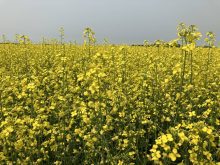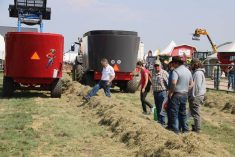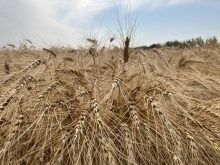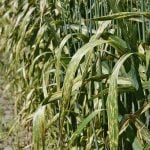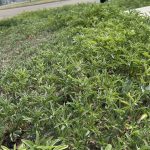For the first time since the federal agriculture department began regulating genetically altered plants nearly a decade ago, a plant variety has been suspended for containing unregistered genes.
In an unprecedented move, the Canadian Food Inspection Agency has frozen the registration on Limagrain’s line of Roundup-resistant canola after quality control tests by Monsanto, the company that owns the gene, revealed the mix-up.
The agency also ordered a full investigation following the company’s voluntary recall of potentially contaminated seed.
“We’ve not had a situation like this one,” said Margaret Kenny, associate director of the agency’s biotechnology strategies. Kenny worked for Agriculture Canada when it was in charge of registering novel plants.
Read Also
Man charged after assault at grain elevator
RCMP have charged a 51-year-old Weyburn man after an altercation at the Pioneer elevator at Corinne, Sask. July 22.
The fact the error was discovered proves the system works, she said.
Big mistake
But Mark Winfield doesn’t agree.
“I’m floored by this,” said the research director for the Canadian Institute of Environmental Law and Policy.
“These guys have been the biggest boosters of this stuff forever so for them to pull the plug on Monsanto, that’s an indication to me that something is pretty wrong.”
The institute argued before a House of Commons environment committee last summer the department is in a conflict of interest over its role as both regulator and promoter of biotech products in Canada.
“The same place that hands out approvals hands out literature on how great biotech is,” Winfield said.
Last March, the agency approved two of the company’s Roundup-resistant lines for environmental release. Only one line was submitted for variety registration, Kenny said.
The problem occurred when genes from a sister line not submitted for registration ended up in the registered variety already on the market.
Under the suspension, it is illegal to buy, sell or advertise the product. Monsanto was required under the Seeds Act to report the error immediately. Limagrain’s decision to recall the seed was voluntary, Kenny said.
“There was no arm twisting. They knew the right thing had to be done.”
The agency approves novel varieties based on samples submitted and examined by its own experts. Once approved, it is up to the individual company to monitor quality control.
It’s a system that could come under fire after last week’s recall.
“That has not been an issue up to this point in time, but you can bet anytime we have situations that arise we go back and look at what could be improved,” she said.
Winfield said there are two reasons the agency would suspend a registration: Either the product does not contain the traits it is supposed to contain under the registration, or the gene found in the plant could be problematic.
“They’ve been loading plants up with all kinds of things. One can only speculate what it could be.”
Kenny said last week the suspension does not involve an environmental or food safety issue.
How did it happen?
Wilf Keller, a lead researcher with the Plant Biotechnology Institute in Saskatoon, wouldn’t speculate about how the unregistered gene got beyond the lab, onto farm service centres and even into a couple of farmers’ fields.
But he did say once it is approved, transgenic material is handled using conventional breeding techniques where it is introduced into new lines and cross-bred to build up disease resistance and oil.
“There is a lot of cross-breeding going on in literally hundreds of lines, and monitoring it at all stages would be very costly and time consuming.”
As a researcher with the National Research Council institute, Keller said he’s “very comfortable” with the level of control the Canadian Food Inspection Agency has over the development of biotechnology in Canada.
The agency, launched April 1, was set up to reduce duplication by combining the inspection services of three departments into one agency. It brings together 10 federal laws and inspections run by the agriculture, health and fisheries departments. Health Canada continues to set the overall food safety policy and standards.




